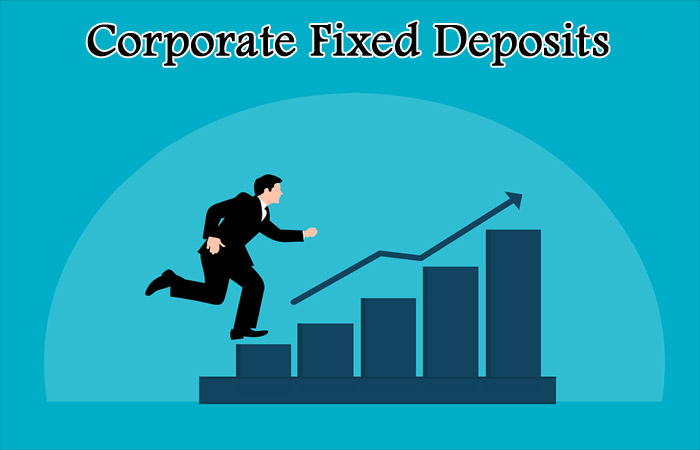10 Important Things you should know while investing in Company Fixed Deposits
When you are talking about investments, bank fixed deposits are ruling in the market. Most people have their fixed deposit accounts in various banks where they have invested their money safely. But you must be astonished to know that you might get a higher return (1-3% than the bank’s interest rate) on your investments if you opt for corporate fixed deposits/company fixed deposits.
What are Corporate Fixed Deposits?
A company fixed deposit is a type of fixed deposit that is issued by various companies including financial organizations, housing finance companies, and NBFCs. If you want to grow your money quickly, then company-fixed deposits could be the best option for you. Company fixed deposit rates are higher than banks’ interest rates. The rating agencies like ICRA, CARE, CRISIL, etc. usually rate corporate deposits based on their credibility.
The company fixed deposits are ideal for housewives, senior citizens, individuals who belong to low bracket income, religious trusts, and so on.
Though company fixed deposits are quite alluring investment options, they also come up with some risks. These risks make the corporate fixed deposit rates higher. Before investing your hard-earned money into such schemes, you should know what is a fixed deposit and how does it work. Over the past few years, many companies have been found delaying the payment of interest and principal on their FDs. So, you should acquire knowledge regarding the best corporate FD before making any investment.
How to Buy Company Fixed Deposits?
- You can purchase company fixed deposits through companies
- You may purchase company FD through brokers
Here we are mentioning 10 important things that you should know before investing in the best company deposits.
Top 10 things you should know before investing in Company FDs
- Unappealing Post-Tax Return
- Investment Security
- Default Risks
- Regulations
- Pre-Closure of Deposits
- Track Record of the Company
- Diversify your Investment Amount
- TDS Deduction
- Mention the Name of the Beneficiary
- Go through the Application Form thoroughly

1. Unappealing Post-Tax Return
The company fixed deposits are popular and compelling because they offer higher interest rates as compared to various public and private banks. But if you belong to the 30% tax bracket, then post-tax returns from company FDs may not be intriguing because they are unable to beat the prevalent inflation. Such people should look for other investment options like debt mutual funds or tax-free bonds.
2. Investment Security
Though corporate FDs offer higher interest rates than banks’ FDs, still, they are not secured as bank FDs. Banks offer security up to the investment of Rs 1 lakh, but this is not the case with corporate FDs. If the company goes bankrupt, the investors’ money will be at risk. Due to this reason, one can fetch high interest rates from company fixed deposits in comparison to bank fixed deposits.
Experts claimed that company FDs are unsecured loans and the customers should understand this before investing. Repayment of principal and payment of interest is not guaranteed by companies. Since corporate FDs are unsecured by nature, in the case of delay of the payment, the investors can’t do anything. Thus, every investor should check the credit ratings and preferably select companies with AA or higher ratings to invest his/her money.
3. Default Risks
Corporate fixed deposits come up with default risks. This risk usually happens when investors withdraw their money early (premature withdrawal). This may push the company to a cash-crunch situation. If a company is facing stringent situations, then it can’t return one’s maturity amount and may default in the payment. For example, in recent years, Elder Pharma is said to have defaulted on its interest and maturity repayment. Because of a liquidity crunch, the company couldn’t repay interest and principal amounts to investors.
Under various situations, a company may find it difficult to pay the full or even partial payment of interest of the principal amount. Before opting for company FDs, an investor should have adequate knowledge regarding the liquidity situation of the company.
4. Regulations
Bank FDs are governed and supported by the Banking Regulation Act, 1949. This Act strictly abides by the regulations of RBI. On the other hand, corporate FDs are monitored by companies and are governed by the provision of Section 58-A of the Companies Act 1956. According to the Companies Act, if a company is facing some troublesome situations, then it must give priority to the equity shareholders in payments rather than the fixed deposit holders. That’s why even the best corporate FDs are risky when it comes to investment.
5. Pre-Closure of Deposits
Companies’ fixed deposits don’t permit premature closure before 6 months. If you want to withdraw your investment before maturity, you will be penalized. Moreover, this premature closure procedure is a daunting task as it demands a lot of paperwork. Though for bank deposits, investors need to pay a penalty for the early withdrawal, they can close the deposit at any time.
6. Track Record of the Company
Don’t get tempted by the high interest rates fixed deposits. Before investing, you must check the reputation and track record of the company. You should do some research or consult with an expert before making any investment.
7. Diversify your Investment Amount
It won’t be a prudent decision if you invest your entire surplus funds in only one corporate fixed deposit scheme. You should invest in 4 or 5 companies by splitting your fund.
8. TDS Deduction
If your interest amount surpasses Rs 5,000 in one financial year, the company will deduct Tax at @ 10%. If the investor belongs to the zero/nil tax bracket, then he should submit duly completed form 15H in duplicate every financial year to get rid of TDS.
9. Mention the Name of the Beneficiary
While investing in corporate fixed deposits, you must mention the name of your beneficiary who will receive the deposit amount if anything happens to you before maturity.
10. Go through the Application Form thoroughly
Always go through the application form thoroughly before making any corporate fixed deposit investment. Check the details to understand premature withdrawal rules of your deposit amount and so on. Also, check other financial details like the profit earned by the company in the last 3 years, dividend track record, etc.
The Bottom Line:
In a nutshell, you just got to learn what are corporate fixed deposits and that they are a safe and convenient investment option for investors. If you follow the aforementioned points, then it would be a good option in enhancing your wealth and mental peace.




























